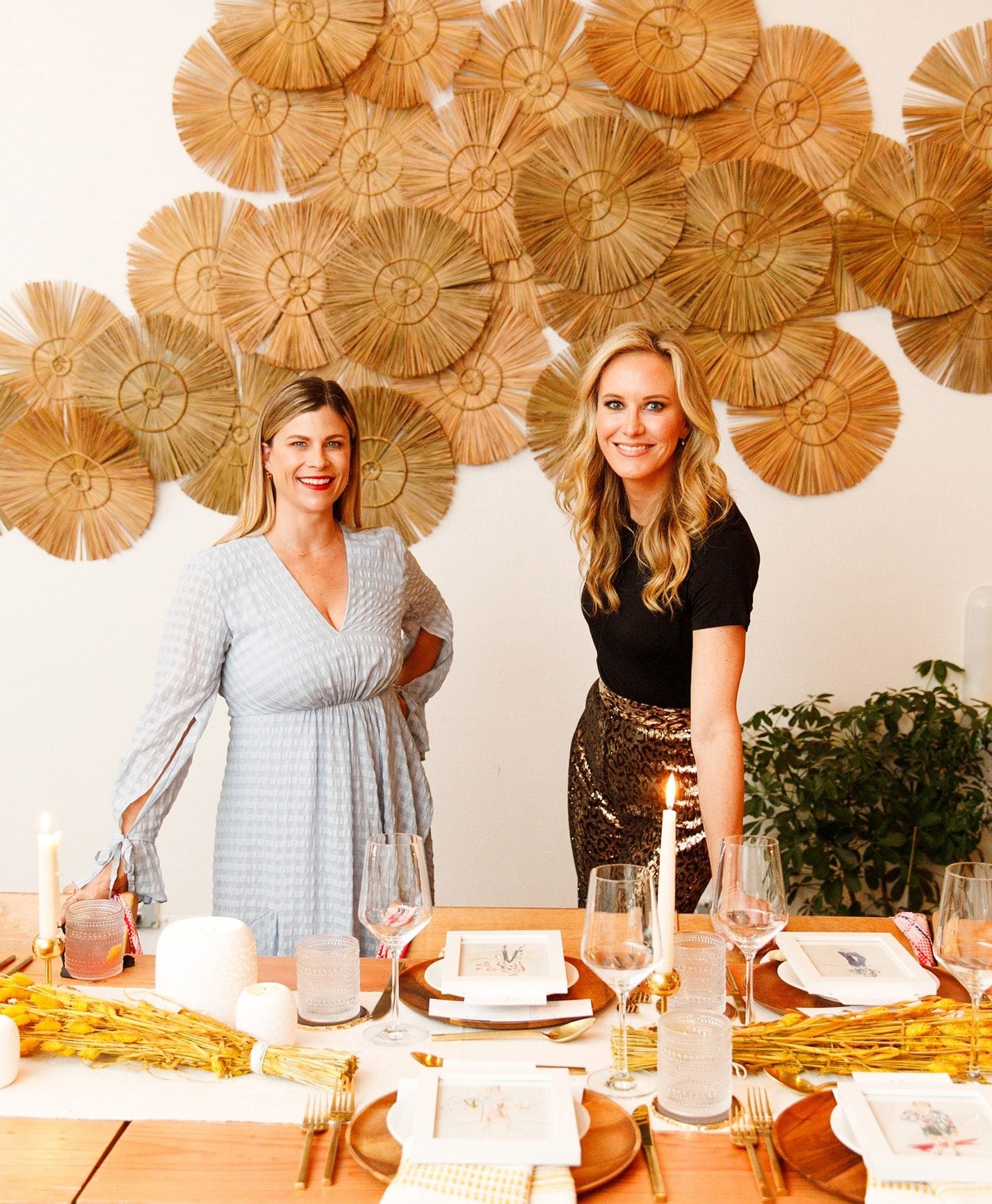The forgotten pleasures of setting a table
The sight of an elaborately-set table signaled special occasions in our family. My mother, a practical woman who was often too consumed with managing our bakery to sit down for meals or bake a cake, marked special days by bringing out her heirloom Noritake 50-piece dining set. For my brother’s breakfast birthday one time, I helped her assemble what seemed like a comical array of nested plates, bowls, saucers, platters, cups, crystal, silverware and—don’t forget—swan-folded napkins. With my grandmother’s brown and gold rimmed china, she could make even a simple meal of instant porridge or cereal feel like a party at 7:00 am. It wasn’t until I moved to the US, a land of Solo cups and beautiful plasticware—that I fully realized her gift.


The sight of an elaborately-set table signaled special occasions in our family. My mother, a practical woman who was often too consumed with managing our bakery to sit down for meals or bake a cake, marked special days by bringing out her heirloom Noritake 50-piece dining set. For my brother’s breakfast birthday one time, I helped her assemble what seemed like a comical array of nested plates, bowls, saucers, platters, cups, crystal, silverware and—don’t forget—swan-folded napkins. With my grandmother’s brown and gold rimmed china, she could make even a simple meal of instant porridge or cereal feel like a party at 7:00 am. It wasn’t until I moved to the US, a land of Solo cups and beautiful plasticware—that I fully realized her gift.
Could it be that the frame, not just the food, made things festive?

This is the premise of Social Studies, a party rental start-up. It was co-founded by Jessica Latham, a sought-after event planner turned film producer and Amy Griffin, an early-stage investor and managing partner of G9 Ventures. The Texas-born childhood friends designed a service that offers 18 composed tablescapes. They range from a Christmas arrangement with chintzy charm, to a rustic, pine-scented hygge holiday table, or a Bauhausian setting for fans of modern design. For $30 to $50 a person, Social Studies’s “party-in-a-box” kit includes plates, linen, candles, flowers, and assembly instructions. Everything is delivered in a padded crate. Perhaps the best part: They’ll pick up the dirty dishes after the event.
Latham, who arranged several high-profile gatherings as Vanity Fair’s former director of special events, says her mother also had a knack for organizing parties. It is the small, thoughtful touches that make any get-together memorable, she says. “You feel that your host is giving you a gift as soon as you arrive.” She adds, “These kinds of details tend to encourage people to stay a little longer to have another glass of wine or two, or crank up the music and the evening turns into a dance party if that’s the direction that you’re going,”
At a time when most of us are a bit tapped out by the limits of technology-aided communications, putting in the effort to organize memorable get-togethers is a meaningful act, Latham argues. “I truly think we’re craving that as a society. The more that we can have a hand in facilitating real face-to-face interactions, the better,” she says.
Spending money on place settings may seem like an indulgence, especially after factoring in the expense of food and drinks. (In the US, the cost of a catered sit-down dinner could start at $25 or $40 per person.) But Latham and Griffin believe that the service offered appeals to party hosts who are short on storage space. It makes perfect sense to turn to a party rental company if your apartment has no room to store china and dinner ware for special occasions. There’s also a viable market in novice organizers who feel nervous about hosting their first party at home, explains Latham. “We’re delivering confidence to their doorstep, we like to say.”

Latham adds that renting a DIY kit from Social Studies comes out cheaper than hiring a professional party planner or even buying table items yourself.

Here’s a breakdown that Latham shared with Quartz:
Table Runners: $40 x 3 = $120Placemats: $12 x 12 = $144
Dinner Plates: $20 x 12 = $240
Salad Plates: $12 x 12 = $144
Flatware set: $20 x 12 = $240
Napkins: $10 x 12 = $120
Glasses: $8 x 12 = $96
Ceramic salt & pepper bowls: $10 x 3 = $30
Box of 6 votives: $12 x 3 = $36
Mason Jars: $10 x 6 = $60
Wood decor bowls: $20 x 6 = $120
Cherries: $5 x 6 = $30
Flowers: $15 x 6 = $90
Total Retail Cost = $1,470
Social Studies rents out the entire set-up (called “Cherry Bomb” for $360 or $30 per person. Their pricing is comparable to other US-based party rental companies such as Party Rentals or All Party.
But what about the environmental cost of transporting dishes back-and-forth? “The environmental piece is definitely something that we have taken into account from the beginning,” says Latham. “I’ve been to parties where it’s just bags and bags and bags of plastic that’s being thrown away and it’s just heartbreaking. Re-usable is just a much better overall plan.”
When Social Studies expands beyond the New York Tri-State area and the Hamptons, Latham says they could decentralize their distribution center so kits don’t have to be shipped too far. “Expansion is down the road for us. In the meantime, I’ll just say that we’re doing the best that we can to make better choices for the environment,” she says.